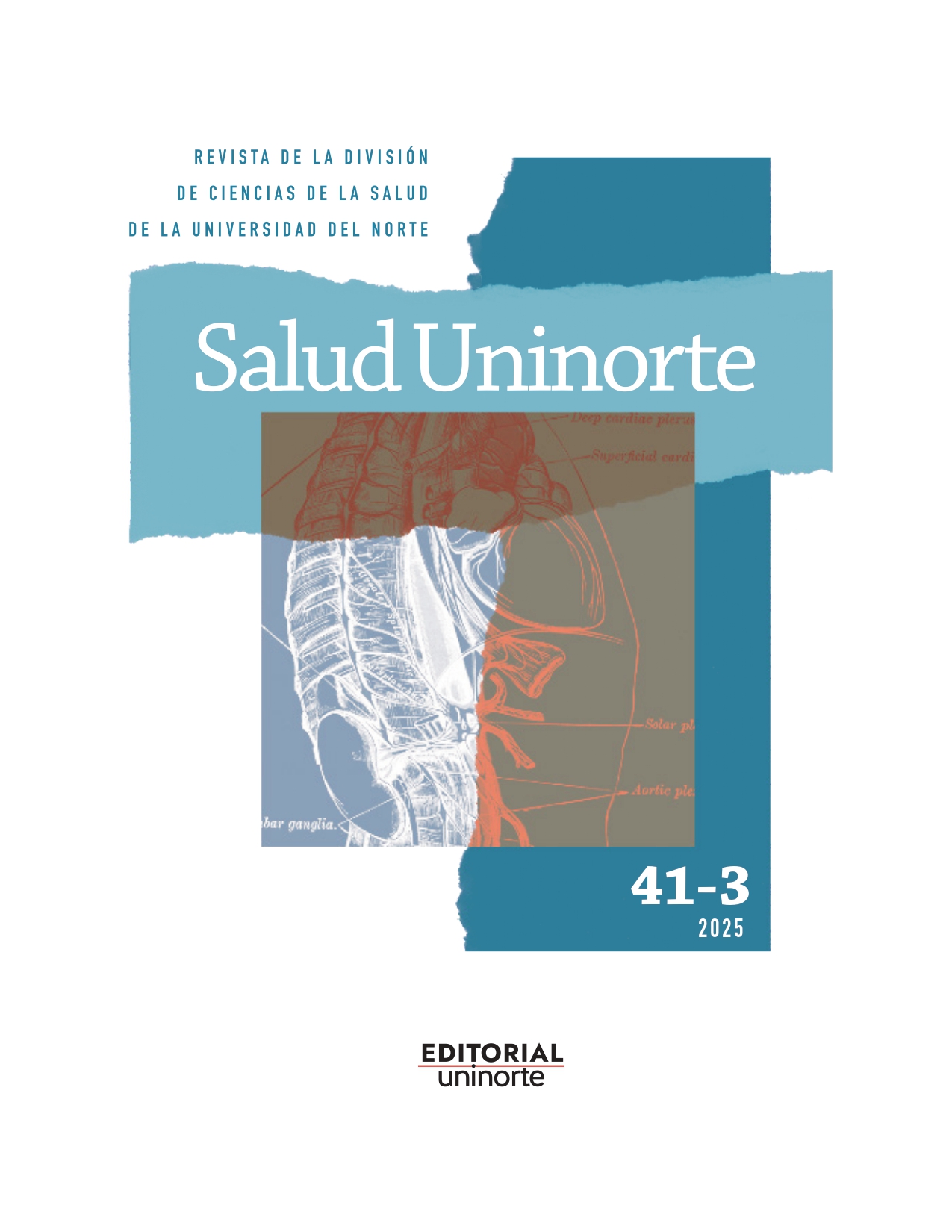Epidemiological analysis of foodborne diseases (FBD) during the COVID-19 pandemic in a department of the Colombian Caribbean, 2021–2022
DOI:
https://doi.org/10.14482/sun.41.03.036.015Keywords:
FBD, diarrhoea, , public health, foodborne diseasesAbstract
Objective: To carry out an epidemiological analysis of ATD cases in a department in northern Colombia during the period 2021-2022; to identify risk patterns associated with socioeconomic factors and places of consumption, and to propose interventions focused on food security.
Methodology: Based on data collected from the departmental health secretariat of Magdalena, a descriptive and retrospective study was carried out using the Foodborne Diseases Notification Form-355. Chi-square tests were applied to evaluate associations between the type of food and the site of poisoning, and a multivariate logistic regression analysis was performed to identify risk factors associated with ATD cases.
Results: The study analyzed 793 cases of ATD in Magdalena. The most frequent places of poisoning were the home (56.2%), restaurants (20.1%), and street food (15.4%). The epidemiological analysis reveals significant associations in the heterogeneous distribution in socioeconomic strata 1, 2 and 3 with probabilities of risk = PR between PR = 2.8 (95% CI: 1.4-5.4) to 5.9 (95% CI: 3.7-9.5) of acquiring food poisoning in mobile places, while the highest strata (5 and 6) have a higher risk of poisoning in restaurants. The foods that had impact on the ATS were dairy foods (32.7%), fish, shellfish (24.7%), and eggs (12%). A strong association was found between dairy consumption and poisoning in homes. The decrease in cases in 2022 could be related to disabling mobility restrictions. A low identification of causative pathogens was observed.
Conclusion: This study highlights the need for targeted interventions in food security, especially in vulnerable populations and street vendors.
Downloads
Published
How to Cite
Issue
Section
License
(COPIE Y PEGUE EL SIGUIENTE TEXTO EN UN ARCHIVO TIPO WORD CON TODOS LOS DATOS Y FIRMAS DE LOS AUTORES, ANEXE AL PRESENTE ENVIO JUNTO CON LOS DEMAS DOCUMENTOS)
AUTORIZACIÓN PARA REPRODUCCIÓN, USO, PUBLICACIÓN Y DIVULGACIÓN DE UNA OBRA LITERARIA, ARTISTICA O CIENTIFICA
NOMBRE DE AUTOR y/o AUTORES de la obra y/o artículo, mayor de edad, vecino de la ciudad de , identificado con cédula de ciudadanía/ pasaporte No. , expedida en , en uso de sus facultades físicas y mentales, parte que en adelante se denominará el AUTOR, suscribe la siguiente autorización con el fin de que se realice la reproducción, uso , comunicación y publicación de una obra, en los siguientes términos:
1. Que, independientemente de las reglamentaciones legales existentes en razón a la vinculación de las partes de este contrato, y cualquier clase de presunción legal existente, las partes acuerdan que el AUTOR autoriza de manera pura y simple a La UNIVERSIDAD DEL NORTE , con el fin de que se utilice el material denominado en la Revista
2. Que dicha autorización se hace con carácter exclusivo y recaerá en especial sobre los derechos de reproducción de la obra, por cualquier medio conocido o por conocerse, comunicación pública de la obra, a cualquier titulo y aun por fuera del ámbito académico, distribución y comercialización de la obra, directamente o con terceras personas, con fines comerciales o netamente educativos, transformación de la obra, a través del cambio de soporte físico, digitalización, traducciones, adaptaciones o cualquier otra forma de generar obras derivadas. No obstante lo anterior, la enunciación de las autorizaciones es meramente enunciativa y no descartan nuevas formas de explotación económica y editorial no descritas en este contrato por parte del AUTOR del artículo, a modo individual.
3. Declara que el artículo es original y que es de su creación exclusiva, no existiendo impedimento de ninguna naturaleza para la autorización que está haciendo, respondiendo además por cualquier acción de reivindicación, plagio u otra clase de reclamación que al respecto pudiera sobrevenir.
4. Que dicha autorización se hace a título gratuito.
5. Los derechos morales de autor sobre el artículo corresponden exclusivamente al AUTOR y en tal virtud, la UNIVERIDAD se obliga a reconocerlos expresamente y a respetarlos de manera rigurosa.
EL AUTOR
















